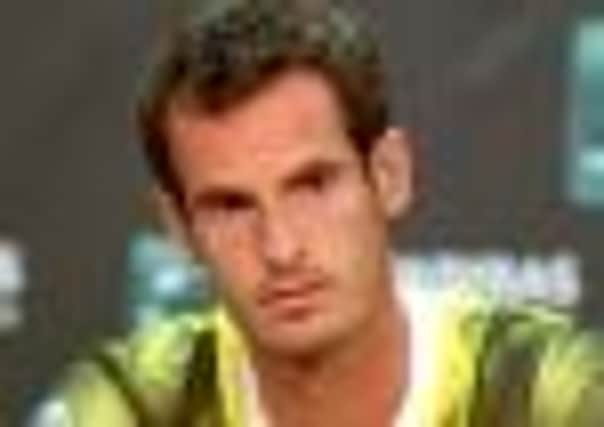Murray speaks out on anti-drug moves in tennis


His status as an outspoken champion of his sport is on the rise, too.
Just a few years ago, Murray complained that the anti-doping rules and regulations were too intrusive and too demanding. He baulked at being forced to tell the authorities where he would be at a specific time of day, 365 days a year, and thought the system was not fair and unworkable. But since then, the scales have fallen from his eyes and now Murray is one of the loudest voices to be heard in the campaign to kick the drug cheats out of tennis.
Advertisement
Hide AdAdvertisement
Hide AdThe announcement last week that the International Tennis Federation was to introduce biological passports for both the men’s and women’s tours pleased the Scot but it was, he thought, not the only answer to the problem. Tennis must do more and must be seen to be doing more.
“There are still grey areas,” Murray said. “People not failing drugs tests doesn’t necessarily mean they’re not trying to cheat. Everyone’s testosterone levels are different and if my testosterone level is lower than yours, and I take something and it boosts my testosterone but it doesn’t go above the [legal] level, is that cheating? It’s not viewed as being cheating, but in my eyes that’s wrong. I wouldn’t do that. Some guys are taller and shorter, you can’t change that, it should be that we play completely naturally but we’re never going to get that.
“With the passports, they have baselines and all the different levels for things throughout your career and they can monitor whether they’re fluctuating, and look back at it in ten years and see, oh, he may have been covering something up with this drug and that’s why whatever levels they’re testing for dropped or rose.”
The passports would record the physiological data collected from each player every time they were tested. Over time, any significant changes in anything from hormone levels to blood count would show up and fluctuations could indicate that the player had been involved in doping.
Roger Federer believes that everyone, be they a grand slam champion or a rookie, should be tested more often.
He said: “Last year, I didn’t get tested through the whole Rotterdam, Dubai and Indian Wells swing where I won all three tournaments. That shouldn’t be OK. We’ve got to go test those guys who are doing really, really well but also test in the Challenger levels, in the first rounds.”
Since the ITF took control of anti-doping in 2004, there have been more than 60 proven cases of doping but that is not to say that many more have gone undetected. And now Murray wants his sport to do even more to keep tennis clean.
“I would say I was probably a bit naïve, not understanding how much of that stuff goes on,” Murray said. “I don’t think we have a culture of it in tennis, but stuff can go on and to make sure that in your head, you’re completely comfortable, you need to have everything in place and have everything done properly, so that everyone can agree that tennis is doing everything we can.
Advertisement
Hide AdAdvertisement
Hide Ad“It’s not to say you’ll never get a person cheating – because you get it in all sports – but I don’t think the system was perfect beforehand. When you hear about the sort of lengths people were going to to not fail drugs test, it was ridiculous, so obviously we had to do more and I think the biological passport is a good step. But there is still more to be done than just that.”